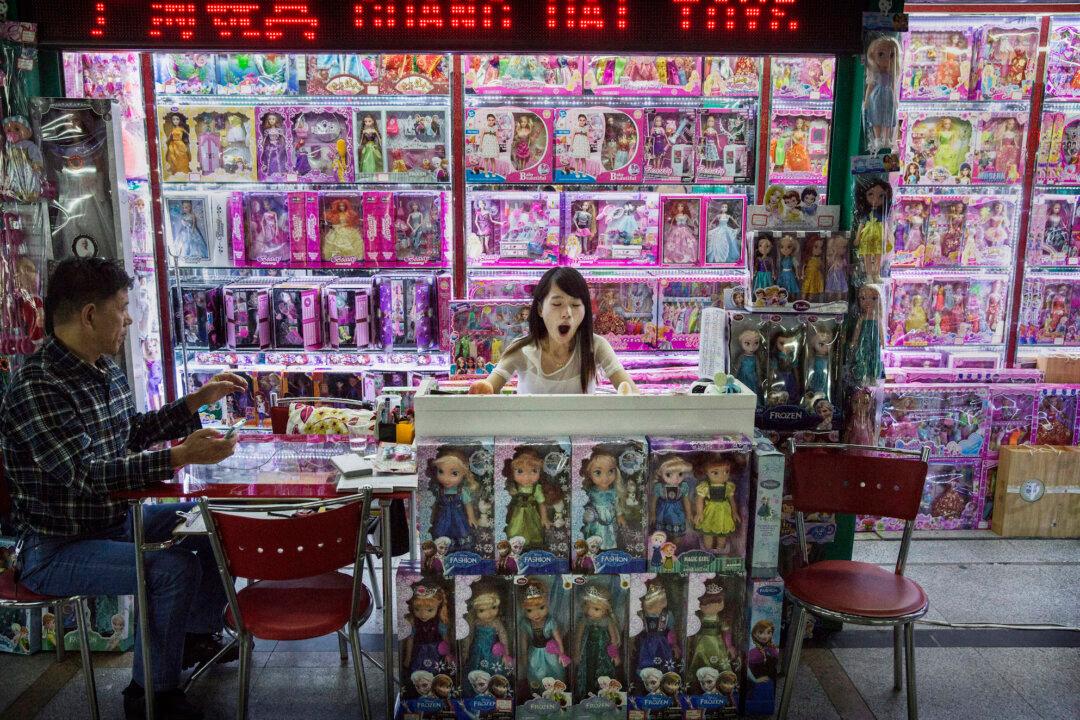Yiwu County in Zhejiang Province is part and parcel of China’s reputation as a manufacturing powerhouse.
After all, the small city houses the world’s largest wholesale market for small commodities, according to official pronouncements by the United Nations and World Bank in 2005.
The Yiwu International Trade City operates like a mega-warehouse, where vendors representing factories from all over China sell their wares—mostly inexpensive household items such as shoes, toys, hardware, and clothing—to customers from around the world.
The 4-million-square-meter (about 43 million square feet) Trade City has room for 75,000 vendors within five shopping districts. But this once hustle-and-bustle hub is now shrinking as more and more merchants exit, vendors told the Chinese-language Epoch Times.
There are various reasons for the decline in business—demonstrated vividly in photos that netizens recently posted online of the Trade City, looking barren and deserted. For one, the Trade City’s second district sent out a notice on Oct. 16 notifying vendors that their rents will be going up.





